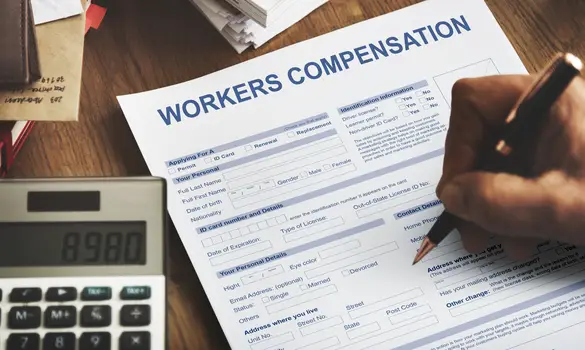
Employers deny workers compensation requests on a daily basis. As an HR professional, you play a role in workers compensation situations. This is especially true when employers deny claims and issues arise. Sometimes, employers refuse valid requests because they do not want to take responsibility for their employees’ injuries. Other times, employees fail to follow the guidelines and produce invalid claims. In order to properly understand who is in the wrong during an occurrence, you need to stay up-to-date on the rules of workers compensation. You may have optimal workplace wellness trends and communication strategies up your sleeve. Unfortunately, you cannot use them to solve workers comp issues. In this post, you will learn the top reasons workers compensation requests are denied.
Not A Witnessed Injury
Many workers compensation requests are denied because there are not any reliable witnesses. Insurers frown upon claims that entail non-witnessed injuries because there is not any proof. Without a witness, an employee cannot prove that they were injured on the job. More so, they cannot prove that they were not breaking any other workers compensation rules during the time of the incident. Throughout your career in human resources, you will likely find yourself dealing with situations where employees filed workers compensation claims, but do not have any witnesses. When you do, explain to the employees that their employers have the right to deny the workers compensation requests.
Late Application
Employers have the right to deny workers compensation requests when employees apply late. Workers have a very specific time frame to follow in order to receive workers compensation. Once a worker gets injured on the job, they need to file within 90 days. Within the three months, they have to submit a form to their employer’s insurance provider. To complete the form, injured workers need to visit their doctors. Before submitting their forms, employees need to have their doctors fill out a portion of the document. Professionals advise injured employees to complete the paperwork as soon as possible for this reason. Then, insurance companies will not have any suspicion due to late workers compensation requests.
Not Work-Related
Another reason workers compensation requests are denied is because the injuries were not work-related. Workers compensation rules regarding work-related injuries are easy to comprehend. Employees who hurt themselves while performing a duty for their employer deserve workers compensation. The same goes for employees who catch a sickness due to work. If you come across an employee who does not meet either of these requirements, employers and insurance companies will deny their claims. For example, an employ who works with construction drone technology could get injured by a device. If they get hurt by a work device on off-hours at their home, they do not qualify for workers comp. As an HR professional, take the initiative to meet with the employee and explain why their request was denied.
No Supporting Medical Documentation
Insurance companies need supporting medical documentation in order to accept workers compensation requests. Many insurers look at previous medical history to gain an understanding of how the issue arose. Some employees have medical conditions that cause them injury. Such employees do not always have the right to workers compensation. If their injuries occurred because of their conditions and not because of the work they were conducting for their employer, they do not qualify. To provide evidence, disability appeal lawyers recommend that you provide a list of medications, notes from your doctor and proof of medical history change. Otherwise, insurers grow suspicious of employees who refuse to provide supporting medical documentation. As a result, they deny them their workers compensation requests.
Under The Influence
Lastly, employers deny workers compensation requests when the employees filing were under the influence at the time of the injury. To begin with, professionals typically look down upon employees who drink alcohol during work hours. After all, employees cannot operate machinery, process information or communicate to the best of their abilities when intoxicated. Most employers and liability insurance agents refute requests from workers who were under the influence when injured. Because this poses a big problem for companies, employers have the right to request alcohol and drug tests during a worker’s initial doctor visit. If the test results come back positive, the employee’s workers compensation request can be denied.
Workers compensation issues arise in many businesses throughout various industries. Advise business owners to get liability insurance to protect them from various legal risks. Employers deny requests for non-witnessed injuries. They can also turn down claims when the injured employees fail to submit their forms within 90 days. Without supporting medical documentation, insurers cannot obtain proof that the injury occurred due to work and can deny the application. Non-work-related injuries are not applicable under workers compensation guidelines. Additionally, workers who fall ill or obtain injuries while under the influence do not qualify. Use these top reasons that workers compensation requests are denied to handle situations appropriately.
 Business First Family Business, Accounting, Finance, Investing, Marketing And Management
Business First Family Business, Accounting, Finance, Investing, Marketing And Management